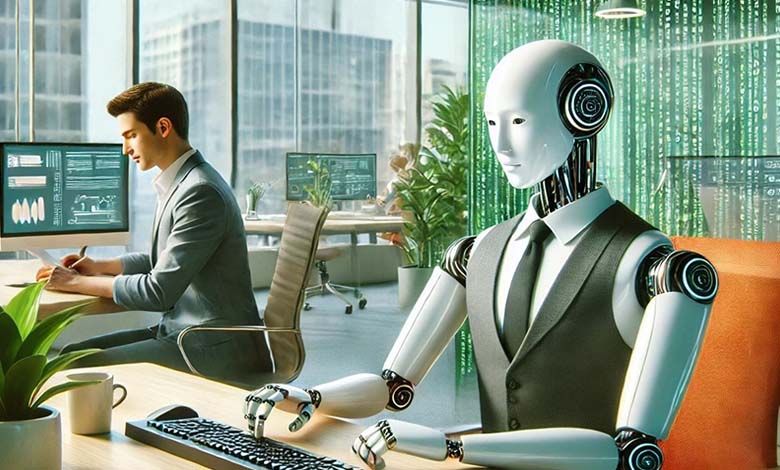Can Artificial Intelligence Be a Safe Partner in the Workplace?

Generative artificial intelligence has become an integral part of the modern workplace, enabling employees to tackle growing challenges and enhance productivity. However, this rapid development raises questions about its impact on human skills, data privacy, and the future of jobs, making it a tool that holds immense opportunities as well as significant risks.
-
“Artificial Intelligence Police” Working Hand in Hand with Chinese Security to Combat Crime
-
Artificial Intelligence Puts Software Engineers at Risk
According to a recent report by the project management platform Wrike, workers in the United States experienced a 31% increase in workload over the past year, while business leaders reported an even greater rise of 46% at the departmental level.
The greatest impact was seen in the technology and financial services sectors, where waves of layoffs have increased pressure on remaining employees, who had to take on additional responsibilities.
-
Benefits and Risks: How Artificial Intelligence Affects Children
-
Artificial Intelligence: A “Factory” for Producing “Fake” Scientific Studies
Additional Costs
The report showed that employees spend an average of 40.8 hours annually compensating for skill shortages. At the same time, nearly 1.5 workdays per week are wasted on unnecessary tasks, costing companies around $15,000 per employee per year.
In response to these challenges, many employees are turning to generative artificial intelligence as a solution to alleviate pressure, using it for tasks such as research, document preparation, data analysis, meeting summaries, and writing.
-
5 Things You Should Know About Artificial Intelligence
-
Artificial Intelligence on iPhones Will Not Be Free
A report by Thomson Reuters estimated that AI currently saves up to 4 hours of work per week for each employee, with the potential to increase this to 12 hours by 2030.
Risks of Artificial Intelligence
Despite its clear benefits, the use of AI carries risks, most notably the exposure of sensitive data when using AI tools. This has prompted companies such as Samsung, Citigroup, and Deutsche Bank to ban the use of tools like ChatGPT to safeguard information confidentiality.
-
Artificial Intelligence Will Reshape the Job Market by 2030
-
How will artificial intelligence change the shape of wars in the future?
Reports also reveal a significant understanding gap between employees and managers regarding how to effectively adopt and utilize AI.
A report by the platform Asana highlighted that only 31% of companies have a formal strategy for AI use, emphasizing the need for clear policies and appropriate guidelines.
-
“United Airlines” Utilizes Artificial Intelligence for Passenger Comfort
-
Europe is concerned about the future of its children due to artificial intelligence
Nonetheless, the positive potential of AI is vast: 89% of employees who regularly use it report increased productivity and improved performance.
To maximize its benefits, companies must raise awareness about this technology and provide the necessary tools to support the safe and effective use of AI in the workplace.












